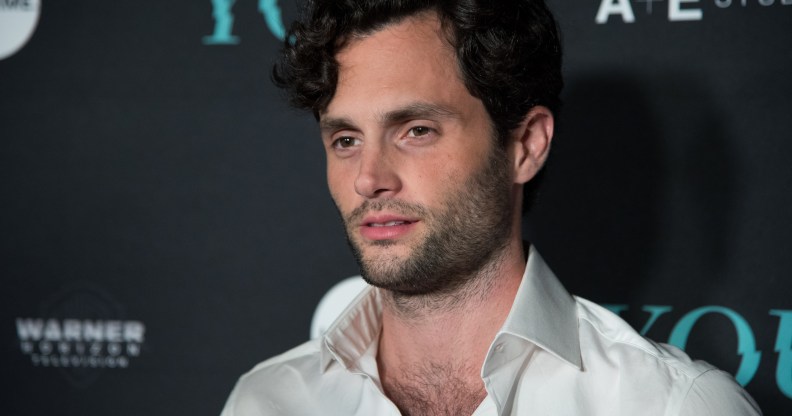Gossip Girl’s Penn Badgley: Acting is full of ‘privileged ass white people’

NEW YORK, NY – SEPTEMBER 06: Penn Badgley attends the “You” Series Premiere Celebration hosted by Lifetime on September 6, 2018 in New York City. (Photo by Mike Pont/Getty Images for A+E)
Gossip Girl star Penn Badgley is upset with the current state of acting, which, all too aware of his own privilege, he is quick to brand as “white” and “male.”
In fact, Badgley thinks acting is so stiflingly un-diverse that he is calling for a “worldwide directive” to ensure that marginalised groups are cast in roles representing their experiences.
“If anybody exists at any kind of intersection of oppression beyond the box of white male, I’d say let’s make damn sure that they’re being represented by the people who have lived this experience [and] not have people who haven’t lived the experience portraying them,” he tells PinkNews.
“Because then at the end of the day you’re getting a real portrayal.”
Penn Badgley: We need to represent oppressed groups in the acting world
The 32-year-old actor is speaking to PinkNews to promote his new series, Netflix thriller You, in which he stars as protagonist Joe Goldberg.
The show aired on Lifetime in the US earlier this year and received critical acclaim. Netflix has picked up international rights to Season 1 and, after Lifetime cancelled the show, will air Season 2 exclusively worldwide.
The conversation with Badgley meanders from the state of social media to diversity and his own views on the entertainment world. It’s clear that the former Gossip Girl star is keen to promote an industry that actually reflects society.
“In reality, we have basically like privileged ass white people playing everybody, and so we need to stop that.”
—Penn Badgley
With Disney coming under fire for casting Jack Whitehall in its first openly gay role—and Scarlett Johansson backing out of a trans role following backlash—I ask whether gay and trans actors should be cast in trans and gay roles respectively.
“Yeah, I actually really like that idea, I do,” Badgley responds.

Penn Badgley, Elizabeth Lail, and Shay Mitchell attend the You Series Premiere on September 5, 2018 in New York City. (Eugene Gologursky/Getty)
“I mean, I think there are a lot of people who would say, ‘Well, it’s actually and therefore…’
“Yes, I think theoretically the idea that anybody should be able to play anybody is true. That’s only in theory.
“In reality, we have basically, like, privileged ass white people playing everybody, and so we need to stop that.”
Badgley’s comments come as award-winning actor Darren Criss said recently that he doesn’t want to take gay roles when there are gay actors who could play those parts instead.
For Badgley, it’s important to distinguish between theory and practice.
“In theory, in a totally just society, yeah, anybody can play anybody and that would be great,” he says.

Actor Penn Badgley at an event promoting You on July 26, 2018 in Los Angeles, California. (Jesse Grant/Getty)
“But that’s not the world we live in. We live in a world that does not recognise virtually anyone outside of the white male or the beautiful white woman who has to be an object of desire and affection.”
Penn Badgley praises You for casting trans actor in trans role
In his new role in You, Badgley plays Joe, a bookstore manager living in New York, who falls in love with customer Guinevere Beck and becomes obsessed with her. The series is based on Caroline Kepnes’ 2014 book You.
“The show is proving to be quite different from the book in a few fundamental ways,” he explains.
“And one of those ways is that Joe is, rather than leaning into the darker part of his personality, he’s actually trying to, I think, escape them because he doesn’t understand them as well as maybe he does in the book.
“He’s slightly but fundamentally different from the book in that he has a bit more sensitivity and humanity which I think simply makes him palatable, otherwise it would be hard to watch.”
The actor praises You for casting trans actor Hari Nef as Blythe, who is also a trans woman in the show—despite this not being the case in Kepnes’ 2014 book.
You been praised for its exploration of the impact of social media on the world of modern love, blurring the boundaries between obsession and romanticism.
You streams on Netflix from December 21.

